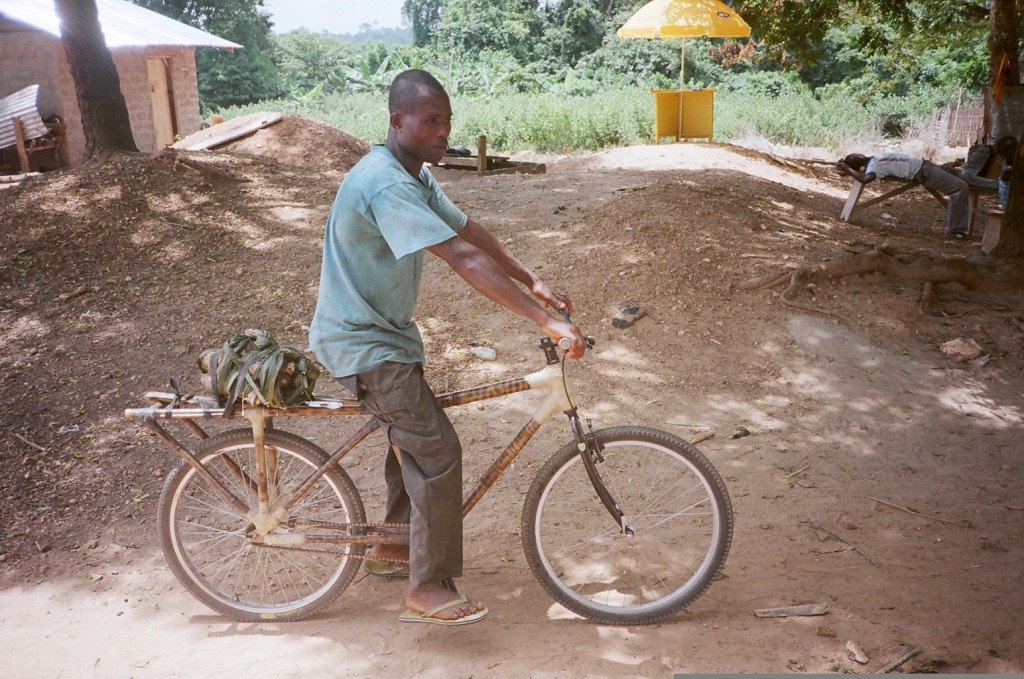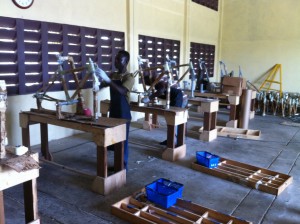Bamboo Bikes Project
First established by scientists at Columbia University’s Lamont-Doherty Earth Observatory (LDEO) with initial funding from The Earth Institute, the Bamboo Bike Project approached MCI to help identify potential local investors to establish factories that make low-cost, high quality, locally produced bamboo bikes that could be widely distributed in Sub-Saharan Africa. Because bamboo is grown locally in many sub-Saharan regions and the manufacturing of bicycle frames does not require costly infrastructure or reliable electricity, MCI quickly embraced this as a viable investment opportunity. Bamboo-framed bicycles are lighter and stronger than steel-framed bikes, adaptable to difficult road conditions and easily modified for different needs, such as carrying farm loads, passengers, food, water and medicine.

To this end, MCI facilitated a feasibility study of the marketability of bamboo bikes in Kumasi, Ghana, with KPMG (entitled, “MCI and VCC Working Paper Series on Investment in the Millennium Cities No. 04/2008”) (link). As a result of the feasibility study and a subsequent Kumasi Investment Day held in New York in September 2008, an investor originally from Kumasi, Mr. Kwame Sarpong, a financial consultant/businessman and Columbia Business School graduate, came forward.
Since that time, Mr. Sarpong has proceeded to establish Bamboo Bikes Limited (BBL) in Kumasi as Africa’s first large-scale bamboo bike production company. (A link to the website can be found here.) MCI was instrumental in establishing the investment in its first Ghanaian Millennium City, attracting donors such as the U.K. Charities Trust and facilitating many of the operational aspects of the project. With support and training from MCI and Columbia’s Bamboo Bikes Project, BBL built several hundred bikes in Kumasi to-date, including an initial order of 750 bikes to be distributed to NGOs across Ghana.
Large-scale production will ultimately help deliver a sustainable and affordable form of transportation to rural populations, while also creating local employment opportunities. BBL worked with MCI to attract partners and to meet new orders. The many groups that can benefit from bamboo bikes include health care workers, students and farmers. This could prove to be a significant solution to some of sub-Saharan Africa’s transport issues and is an example of MCI’s commitment to attracting sustainable investment to the Millennium Cities.

Please enjoy our slideshow on the Bamboo Bike Project. To see pictures of the bamboo bike factory in Kumasi, Ghana, and to read about MCI’s visit to the facility in October 2011, please go here.
For more information on the Bamboo Bike Project (link), please contact Prof. John Mutter, Department of Earth and Environmental Sciences and Department of International and Public Affairs, and one of the BBP’s original creators. To read Prof. Mutter’s account of his trip to Kumasi in January 2011 and to participate in the bamboo bike training, please go here. Prof. Mutter also gave an interview to the BBC on bamboo bikes, which can be found here (interview starts at 2:43). To contact the Bamboo Bike Studio, please go here.



